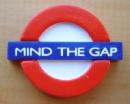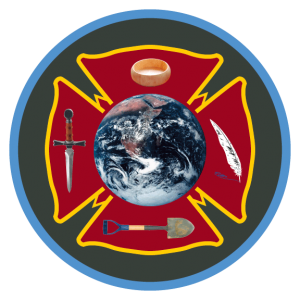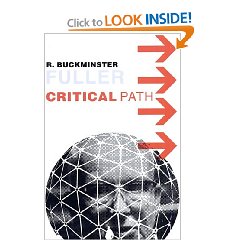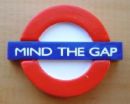
A Gift–Properly Priced, Presented, and MOST Rewarding,
The Trouble with Africa: Why Foreign Aid Isn't Working
Dead Aid: Why Aid Is Not Working and How There Is a Better Way for Africa
Tomorrow I will plow through Africa Unchained: The Blueprint for Africa's Future and post a review.
The author, a Nobel Peace laureate for the Green Belt Movement, delivers a very straight-forward, practical “woman's voice” account of both the past troubles, present tribulations, and future potential of Africa. This book is replete with “street-level” common sense as well as a real sense of nobility.
Early on the author addresses the reality that uninformed subsistence farming, what 65% of all Africans do, is destroying the commons. I find that ignorance–and the need to educate and inform in their own local language (no easy task when speaking of thousands of local languages)–is a recurring theme in this book. I see *enormous* potential for the application of what the Swedish military calls M4IS2 (multinational, multiagency, multidisciplinary, multidomain information-sharing and sense-making).
The author provides an ample tour of the horizon of aid, trade, and debt imbalances, of the dangers of culture and confidence of decline, of the need to restore cultural and environmental diversity, and of the need to reprioritize agricultural, education, and environmental services instead of bleeding each country to pay for the military and internal security (and of course corruption).
CORE POINT: The *individual* African is the center of gravity, and only Africans can save Africa–blaming colonialism is *over*. The author's vision for a revolution in leadership calls for integrity at the top, and activism at the bottom, along with a resurgence of civil society and a demand that governments embrace civil society as a full partner.
CORE POINT: The environment must be central to all development decisions, both for foster preservation and permit exploitation without degradation. Later in the book the author returns to this theme in speaking of the Congo forests, pointing out that only equity for all those who are local will allow all those who are foreign to exploit AND preserve.
I am fascinated by the author's expected discussion of the ills of colonialism including the Berlin division, the elevation of elites, arbitrary confiscations of lands, and proxy wars, what I was NOT expecting was a profound yet practical discussion of how the church in combination with colonialism was a double-whammy on the collective community culture of Africa.
The author observes that any move away from aid, which has been an enabler of massive corruption at the top, and toward capitalization and bonds [as the author of Dead Aid proposes in part] will be just as likely to lead to corruption absent a regional awakening of integrity.
The author discusses China, observing that China has used its Security Council veto to protect African interests, and the author observes that the West continues to destroy Africa with arms sales, France and Russia especially, followed by China, with the US a low fourth.
I learn that patronage and the need for protection are the other side of corruption as a deep-seated rationalization for keeping power, and I learn that pensions in Africa are so fragile that retirement is fraught with risk, another reason to seek long-term power holding. I am inspired to think of a regional pension fund guaranteed by Brotherly Leader Muuamar Al-Gathafi.
On a hopeful note the author praises the election of Ellen Johnson-Sirleaf as leader of Liberia, and sees real promise in the AU leadership summits that she attends.
CORE IDEA: Leadership training at all levels must keep pace with the changes in technology and the complexity of Africa's engagements. Civil Society in particular must be understood and embraced by government leaders at all levels.
The author spends time around page 134 discussing her pilot project to create local empowerment, devolving decision-making to create a multi-layered structure that establishes priorities while also providing accountability and transparency, minimizing corruption. Using a trained facilitator, the author brought together around 40 fifteen-person committees to create a strategic plan, and that is now useful as a map regardless of turn-over.
On page 158 the author briefly discusses ECOSOC (Economic, Social, and Cultural Council of the African Union) founded in 2005 to bring the voices of the people into the AU deliberations; to educate the peoples of Africa on all aspects of African affairs; and to encourage civil society throughout Africa.
My reaction: ECOSOCC is a center of gravity and could be the lever needed to create a regional M4IS2 network that substitutes information for violence, capital, time, and space. A harmonization of investments to address regional cell phone access (Nokia ambient energy devices), regional radio stations using solar power; and a regional public information program on the basics of mosquito control and other key public health topics, all call out for action in partnership with ECOSOCC.
Later in the book the author equates misinformation with alcohol and drugs. Ignorance is a recurring theme.
The conclusion of the book is full of deep wisdom on re-imagining community, restoring family by returning the men, stopping the brain drain, and making it easier for remittances to return; of the need to create micro-nation forums within each macro-nation; of the need to create local radio stations in each of the local languages and dialects; of the need to address energy shortfalls while stopping the march of the desert; and finally, of the need to address the pressing twin issues of land ownership and tourism management so as to restore the primacy of African interests.
The book ends on a hugely positive note calling for Africans to reclaim their land; reclaim their culture; and reclaim themselves.
Other books I consider relevant to respecting Africa:
Breaking the Real Axis of Evil: How to Oust the World's Last Dictators by 2025
Deliver Us from Evil: Peacekeepers, Warlords and a World of Endless Conflict
A More Secure World: Our Shared Responsibility–Report of the Secretary-General's High-level Panel on Threats, Challenges and Change
The leadership of civilization building: Administrative and civilization theory, symbolic dialogue, and citizen skills for the 21st century
How to Change the World: Social Entrepreneurs and the Power of New Ideas, Updated Edition
The Fortune at the Bottom of the Pyramid: Eradicating Poverty Through Profits (Wharton School Publishing Paperbacks)
Infinite Wealth: A New World of Collaboration and Abundance in the Knowledge Era
Click Here to Vote on Review at Amazon,
on Cover Above to Buy or Read Other Reviews,
I Respond to Comments Here or There









